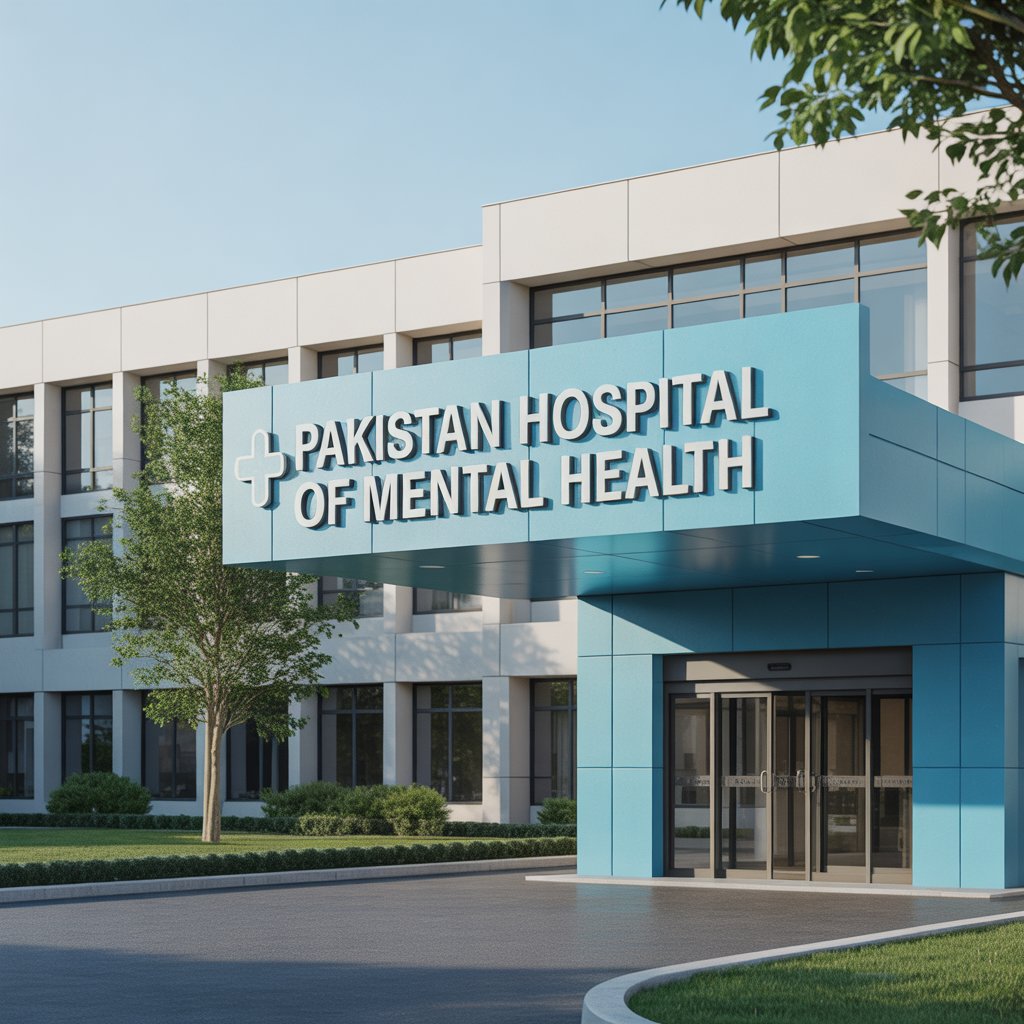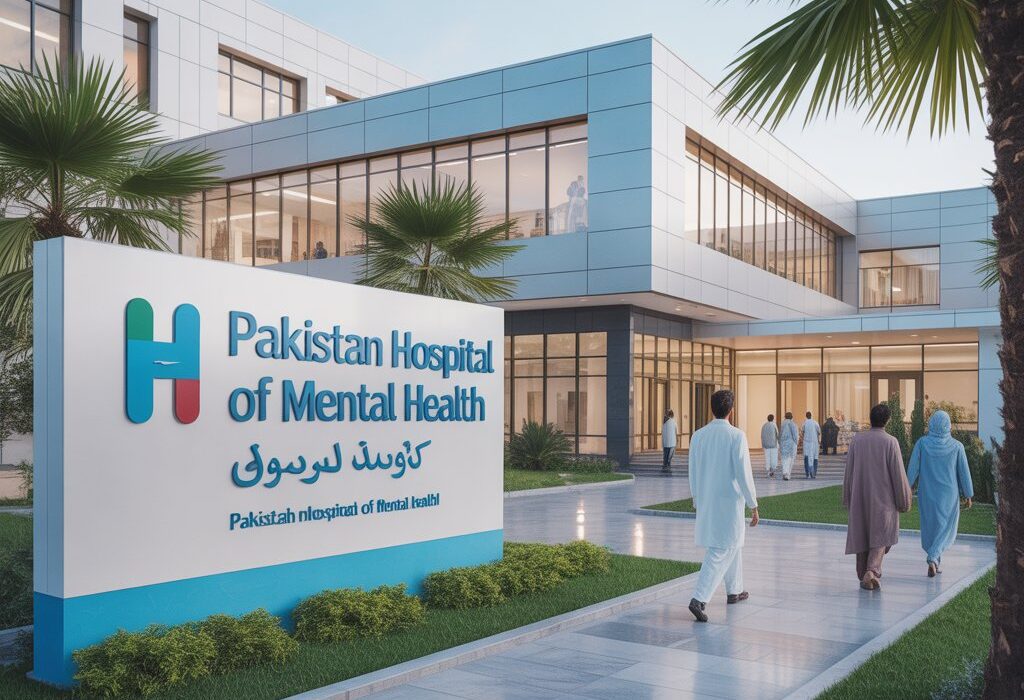A Guide to the Pakistan Hospital of Mental Health
Mental health is an integral part of our overall well-being, yet seeking specialized care can often feel daunting for individuals and families across the nation. In this landscape, the Pakistan hospital of mental health stands as a pivotal institution dedicated to providing crucial psychiatric and psychological services. Understanding the role and services of a national-level Pakistan hospital of mental health is the first step toward demystifying mental healthcare and encouraging those in need to seek professional support. These hospitals serve as beacons of hope, offering structured, compassionate care for a wide range of mental health conditions.
The concept of a dedicated Pakistan hospital of mental health represents a significant commitment to public health. Unlike general hospitals, these specialized facilities are designed from the ground up to address the unique needs of individuals experiencing mental and emotional distress. Their mission extends beyond acute crisis management; they aim to provide comprehensive care that includes diagnosis, treatment, rehabilitation, and community outreach. Consequently, they play a multi-faceted role in not just treating illness but also in reducing stigma and advancing the field of psychiatry within the country.
The Core Functions of a National Mental Health Hospital
A premier Pakistan hospital of mental health operates on several fronts to create a robust support system for patients. Its functions are designed to cater to different levels of need, from emergency intervention to long-term wellness.
1. Inpatient and Outpatient Services: A Continuum of Care
The hospital typically provides two primary streams of care. Inpatient services are for individuals requiring intensive, 24-hour medical supervision. This is often necessary during a severe mental health crisis, for stabilization, or for complex diagnostic procedures. Conversely, outpatient services allow individuals to receive treatment while continuing to live at home. This includes regular appointments with psychiatrists and therapists, which is ideal for managing ongoing conditions like depression, anxiety, and bipolar disorder. This dual structure ensures that help is available at every stage of a person’s journey.
2. A Multidisciplinary Treatment Approach
The strength of a specialized hospital lies in its collaborative team of experts. This multidisciplinary team usually includes:
- Consultant Psychiatrists: Medical doctors who diagnose mental health conditions and manage treatment, including medication.
- Clinical Psychologists: Professionals who provide psychotherapy (talk therapy) such as Cognitive Behavioral Therapy (CBT) to help patients understand and manage their thoughts and behaviors.
- Psychiatric Nurses: Specially trained nurses who provide round-the-clock care and support for inpatients.
- Social Workers: They assist with psychosocial aspects, including family counseling, discharge planning, and connecting patients with community resources.
This integrated approach ensures that a patient’s biological, psychological, and social needs are addressed simultaneously, leading to more holistic and sustainable recovery.
3. Crisis Intervention and Emergency Care
Mental health crises require immediate and expert attention. A dedicated hospital offers emergency psychiatric services for situations involving severe suicidal ideation, acute psychotic episodes, or other emergencies. Having a specific destination for a mental health crisis can prevent individuals from being misplaced in general emergency rooms that may not have the specialized staff or resources to provide optimal care.

Breaking the Stigma: The Hospital’s Role in Public Awareness
One of the most critical roles of a national institution is its work in public education. The Pakistan hospital of mental health often leads efforts to combat the deep-seated stigma associated with mental illness. This is achieved through community workshops, public seminars, and media engagements that promote mental health literacy. By normalizing conversations about mental health and framing it as a treatable medical condition, these hospitals empower individuals to seek help without shame, fostering a more compassionate and informed society.
What to Expect When Seeking Help
If you or a loved one is considering reaching out to a mental health hospital, it is natural to feel apprehensive. The process typically begins with an initial assessment, where a clinician will discuss your concerns, symptoms, and history. This evaluation helps in creating a personalized treatment plan. It is important to remember that you are taking a proactive step toward wellness. The environment in a modern mental health facility is designed to be safe, confidential, and supportive, focusing on dignity and recovery.
The existence of a dedicated Pakistan hospital of mental health is a testament to the growing recognition of mental health as a national priority. It represents a sanctuary for healing, a center for learning, and a powerful advocate for those whose struggles are often silent. By providing expert, compassionate, and accessible care, these institutions illuminate a path forward for countless individuals, helping them reclaim their lives and discover a future defined not by illness, but by resilience and hope.
Frequently Asked Questions (FAQs)
1. What is the difference between a mental health hospital and a regular hospital’s psychiatry ward?
A dedicated mental health hospital is specifically designed for psychiatric care, with an entire environment, staff, and resources focused on mental wellness. A general hospital’s psychiatry ward is one department among many, often focused on short-term stabilization before referring patients to specialized outpatient or inpatient facilities for long-term care.
2. How can I get an appointment for a consultation?
The process usually involves a referral from a general physician, but many hospitals also allow for direct appointment scheduling. It is best to contact the hospital’s administration or outpatient department directly via phone or their official website to understand their specific registration procedure.
3. Are the treatments and conversations confidential?
Yes, absolutely. All reputable medical facilities in Pakistan, including mental health hospitals, are bound by strict patient confidentiality laws. Your personal information and the details of your treatment are private and protected, shared only with your consent or in specific legal circumstances where there is a risk of harm.
4. What conditions do you typically treat?
These hospitals treat a wide spectrum of conditions, including but not limited to depression, anxiety disorders, bipolar disorder, schizophrenia, Post-Traumatic Stress Disorder (PTSD), Obsessive-Compulsive Disorder (OCD), and substance use disorders.
5. Do you provide support for families of patients?
Yes, family involvement is often encouraged as part of the therapeutic process. Many hospitals offer family therapy sessions and educational workshops to help loved ones understand the patient’s condition, learn effective communication strategies, and provide a supportive home environment, which is crucial for recovery.




